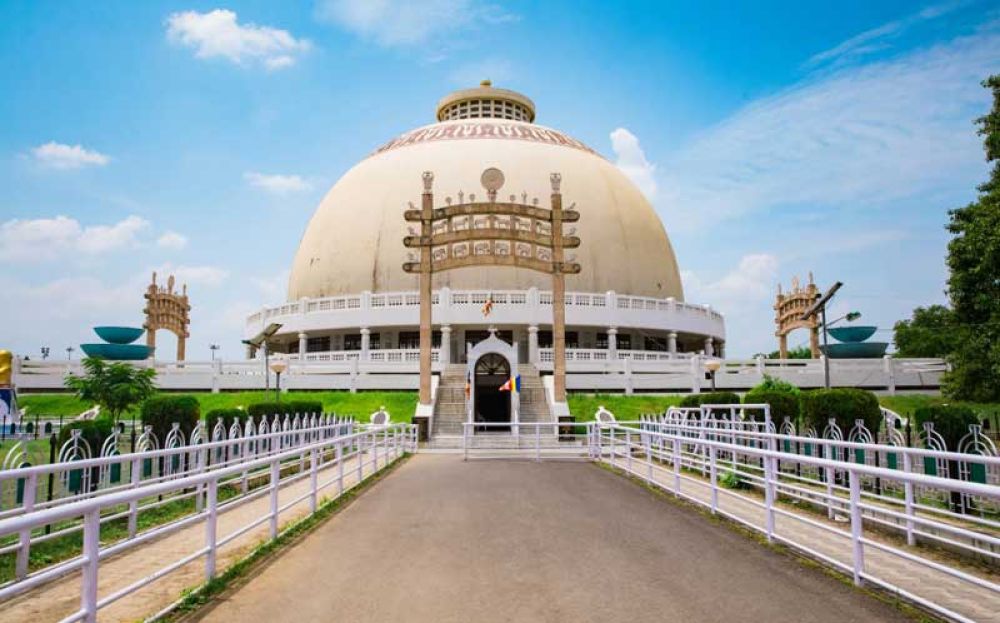

Deekshabhoomi, a sacred monument located in Nagpur, Maharashtra, is a place of great historical and spiritual significance. It marks the spot where Dr. Bhimrao Ramji Ambedkar, the architect of the Indian Constitution, converted to Buddhism on October 14, 1956. This mass conversion ceremony was an epochal event in the annals of Indian history, as Dr. Ambedkar, along with approximately 600,000 followers, embraced Buddhism, rejecting caste discrimination and advocating equality.
The history of tourism at Deekshabhoomi is relatively recent when compared to ancient historical sites in India. The stupa constructed at this site was completed in 2001 and has since been a beacon attracting visitors and pilgrims from across the world, especially those who follow Buddhism and Ambedkarite philosophy.
The tourism at Deekshabhoomi started gaining momentum post the inauguration of this grand monument. Since then, it has become a place of pilgrimage, especially on Dhamma Chakra Pravartan Din (the day of the conversion ceremony). The influx of tourists consists mainly of history enthusiasts, spiritual seekers, followers of Buddhism, and those who study or revere Dr. Ambedkar.
The stupa at Deekshabhoomi is one of the most important Buddhist stupas in India and is unique due to its hollow design. Its architectural beauty draws numerous visitors who are eager to witness its grandeur and serene ambiance. Tourists can explore the photo exhibition detailing the life and work of Dr. B. R. Ambedkar, and the library within the stupa premises offers an expansive collection of books on Buddhism and Ambedkar's works.
Recent trends in tourism at Deekshabhoomi include a growing interest in heritage and cultural tourism. People are increasingly keen to learn about the social reform movements in India and the individuals who have shaped its modern history, such as Dr. Ambedkar. Additionally, there is a rising trend of incorporating mindfulness and spiritual practices into travel itineraries, making destinations like Deekshabhoomi more appealing.
In recent times, educational tourism has also peaked with students of social sciences and political studies visiting the site for research and educational purposes. Deekshabhoomi has thus turned into a center for educational excursions and seminars.
The government has taken significant steps to promote Deekshabhoomi as a prominent tourist destination. Enhanced infrastructure development, improvement of connectivity, and the establishment of amenities such as clean and hygienic restaurants, guest houses, and information centers have been initiated to cater to tourists. The area around Deekshabhoomi has seen comprehensive planning to maintain its sanctity and provide a hospitable environment for visitors.
Overall, Deekshabhoomi stands as a symbol of equality and social justice. Its presence continues to influence the fabric of Indian society and beckons travelers from every corner of the globe to delve into its profound narrative and experience its peaceful aura.